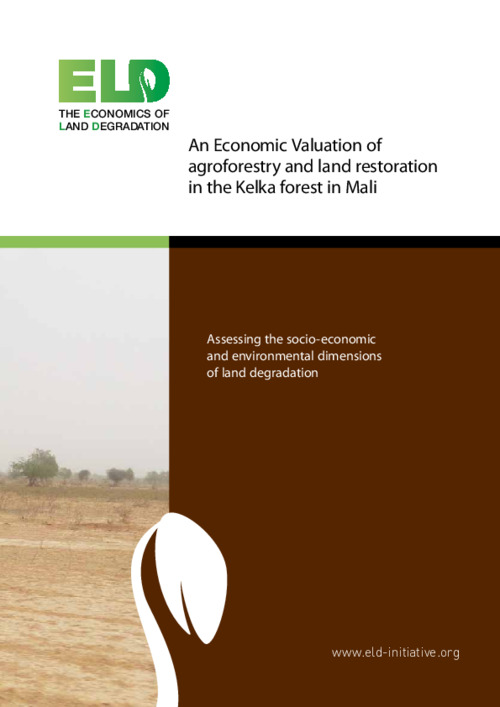An Economic Valuation of agroforestry and land restoration in the Kelka forest in Mali_Assessing the socio-economic and environmental dimensions of land degradation
Abstract
The Kelka forest in the Mopti region of Mali is
important for the provision of ecosystem services
like carbon sequestration and maintenance of
the hydrological cycle. The Kelka forest area
occupies more than 300, 000 hectares with 15
villages within and around its boundaries. The
forest resources and soil fertility of the forest
are in continuous decline due to a combination
of climatic and human induced factors. For
example, the availability of firewood has halved
over the past 15 years due to a lack of adequate
forest and land management.
Sustainable land management interventions
that can reverse the current trend of forest and
land degradation are increasingly necessary,
but large scale interventions need to be
grounded in solid assessments of their potential
economic and financial value to the local and
the global society. To address this need, the
paper presents an ex-ante cost benefit analysis
of large-scale agroforestry and reforestation in
the Kelka forest to inform decision-makers about
the value and importance of changing current
land use practices. The economic valuation uses
‘productivity change’, ‘avoided cost’, ‘replacement
cost’, and ‘market based’ valuation methods. The
analysis is based on high-resolution remote sensing
techniques, an explicit spatially distributed
hydrological model, and a crop growth model,
developed to assess the impact of land use change
on firewood availability, soil moisture, carbon
sequestration, and nitrogen fixation.
Using different discount rates, results indicate
that the benefits of large-scale agroforestry and/
or reforestation are significantly higher than the
costs of implementing the restoration options
over a 25 year time horizon. Different options for
incentivizing agroforestry and restoration of the
Kelka forest are discussed

